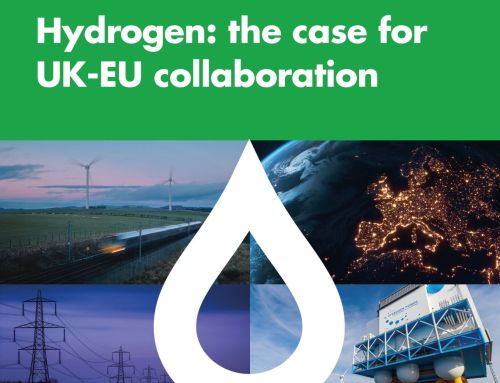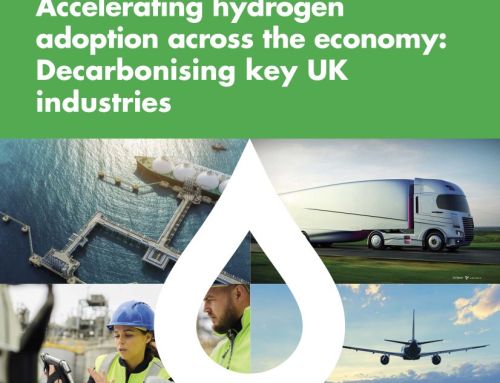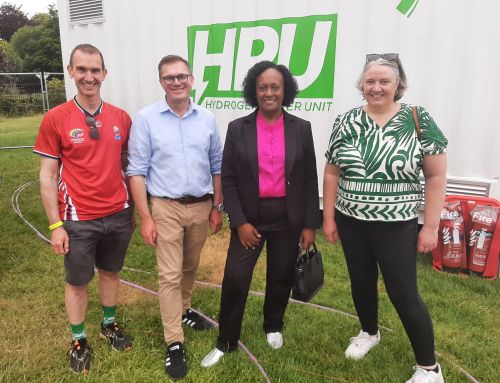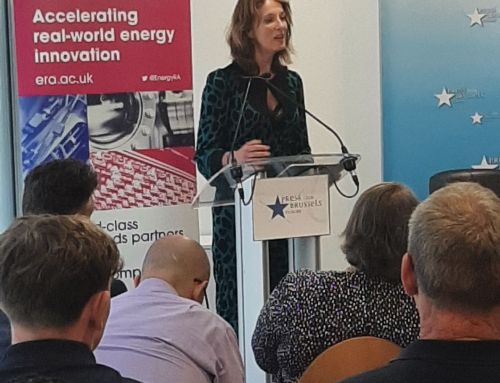New report reveals significant potential for hydrogen rail in the Midlands
Midlands is key to delivering zero-emission trains of the future …
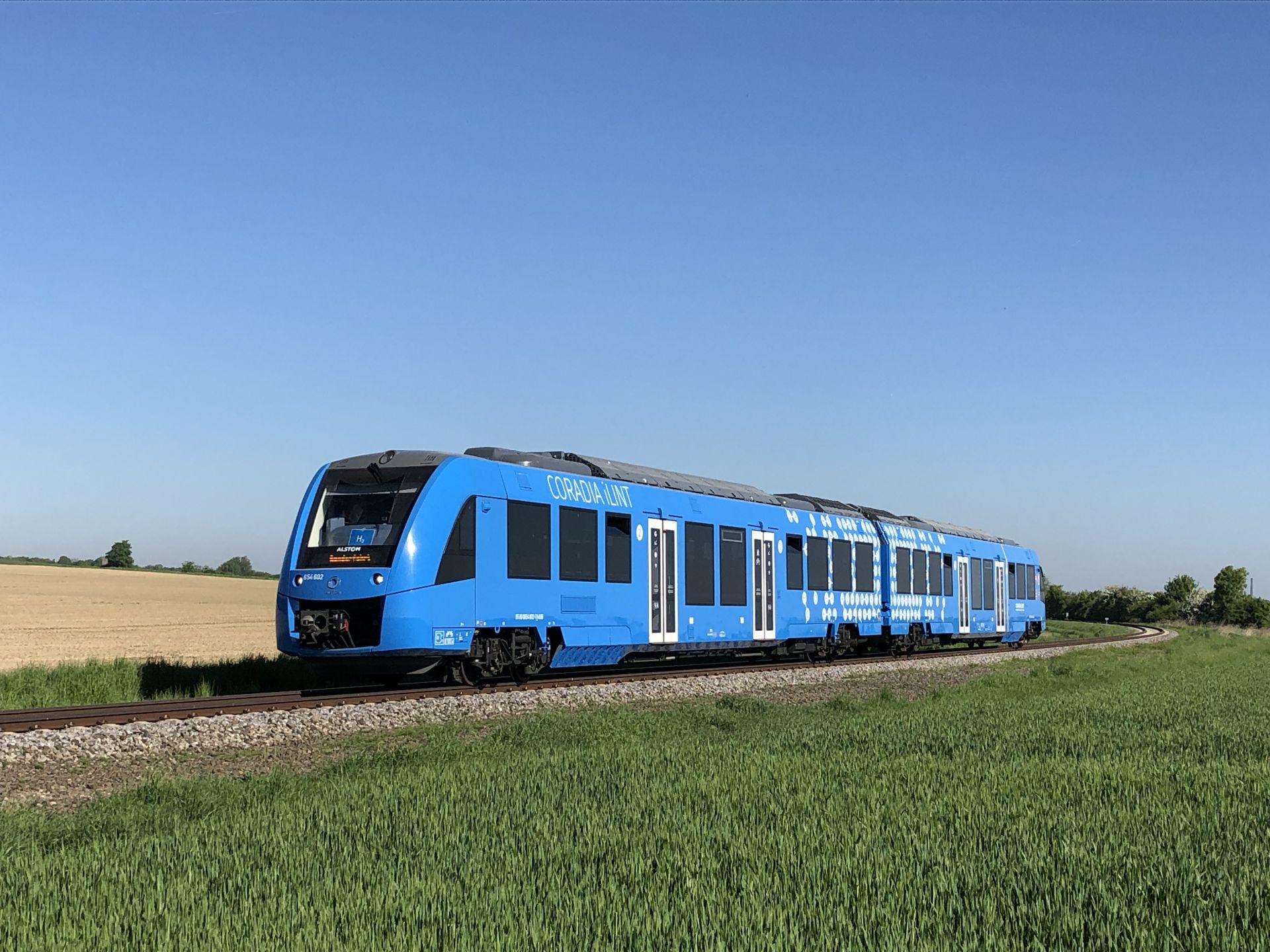
- Midlands is key to delivering zero-emission trains of the future
- The report recommends hydrogen rail is piloted in the Midlands
- Four immediate potential hydrogen train routes have been identified
- Hydrogen production and infrastructure development plans in the region can potentially support hydrogen rail development and deployment
A new report, launched today at Alstom in Derby, has identified that the Midlands region could be a pivotal player in the decarbonisation of the UK rail sector through the potential adoption of hydrogen rail technology.
The report, which is entitled ‘Midlands Hydrogen Rail Study – the Landscaping of Hydrogen Rail Opportunities across the Midlands’ was commissioned by HyDEX and the Energy Research Accelerator to explore sustainable solutions for rail transport, particularly opportunities in hydrogen rail.
The study, which was undertaken by ARUP, in conjunction with Vanguard and the University of Birmingham, incorporates the collaborative efforts of regional stakeholders and industry experts, and emphasises the Midlands’ dual strength in both net-zero transport and low carbon hydrogen technologies.
As identified in the region’s ‘Ten Point Plan for Green Growth’ report by the Midlands Engine, the transport and hydrogen sectors present great opportunities for the region to spearhead low carbon and environmentally sensitive economic growth, and contribute significantly to broader national decarbonisation efforts.
Hydrogen rail provides a promising avenue for achieving decarbonisation objectives, particularly on routes where electrification proves impractical or economically unfeasible. With the UK’s commitment to decarbonise its rail sector by 2040, hydrogen trains offer a pragmatic interim or permanent alternative, providing a pathway to sustainable rail transport.
The Midlands also boasts the UK’s largest rail industry hub, housing leading developers of hydrogen rolling stock and batteries, including Alstom, Porterbrook, Eversholt, and Siemens. Leveraging the region’s industrial strengths, together with its robust research and development capabilities in renewable energy and transport decarbonisation, the report suggests that hydrogen rail presents a significant opportunity to accelerate the transition towards zero-emission transportation.
The report identifies four key routes within the Midlands which are suitable for hydrogen train trials, based on various operational and logistical factors. These routes include:
- Nottingham to Skegness
- Worcester Foregate to Birmingham Snow Hill to Stratford-upon-Avon
- Birmingham New Street to Shrewsbury
- Birmingham New Street to Kings Norton (the Camp Hill line)
Critically, the Midlands’ existing hydrogen infrastructure, including the UK’s largest hydrogen refuelling station in Tyseley, positions the region as a frontrunner in supporting the deployment of hydrogen-powered trains. The report emphasises the potential synergy between hydrogen rail initiatives and the broader Midlands hydrogen economy, highlighting opportunities for regional economic growth and innovation.
Speaking about the report, Professor Martin Freer, Director of the Energy Research Accelerator, said: “We are proposing to test the commercial potential of hydrogen rail in the Midlands through trialling one or more routes in the region. It would support the UK’s rail decarbonisation journey, particularly on hard-to-electrify routes. If the demonstration proves to be successful, then it would give a major boost to the wider hydrogen economy in the region, along with R&D at our universities, and would provide exciting new opportunities for our rail industry.
“With the momentum gained from successful hydrogen train trials, the Midlands would not only be pioneering the decarbonisation of rail transport landscape but would also be paving the way for a greener, more sustainable future for the entire UK.”
The report concludes that the next steps should be to create a route to market by conducting a feasibility study and demonstration route to prove the case for hydrogen rail. Beyond this, it suggests that government needs to support the development of refuelling infrastructure for hydrogen trains and should incentivise train operators to consider the production of hydrogen and battery trains over diesel trains.
ENDS
The Midlands Hydrogen Rail Study can be downloaded here
For media enquiries, please contact Nick King, Marketing and Communication Manager at the Energy Research Accelerator, email Nick.King@era.ac.uk or tel: 07974 690632
About the Energy Research Accelerator (ERA)
The Energy Research Accelerator (ERA) is a consortium of eight leading research-intensive universities in the Midlands (Aston, Birmingham, Cranfield, Keele, Leicester, Loughborough, Nottingham, Warwick), and the British Geological Survey, who are dedicated to addressing the global energy challenge.
In 2016 ERA was awarded £60m by Innovate UK to invest in new energy facilities in the Midlands. This attracted an additional £110 industrial investment and resulted in 23 world-class research facilities and demonstration projects being created across the Midlands.
ERA runs the HyDEX programme, which is working to develop the hydrogen economy in the Midlands. ERA and HyDEX foster collaborative research and innovation to accelerate the development and deployment of sustainable energy solutions.
For more information visit www.era.ac.uk or www.hydex.co.uk

